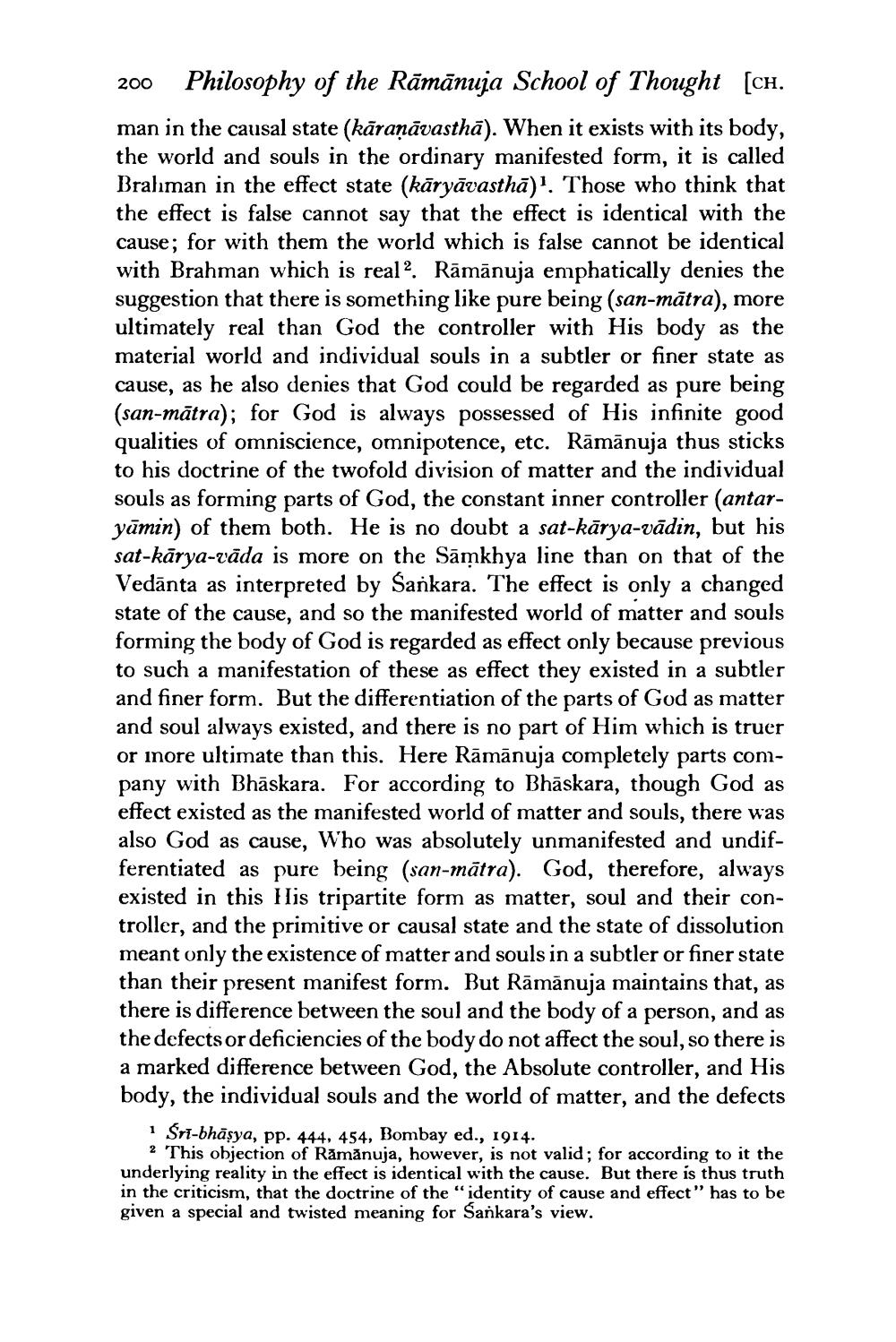________________
200 Philosophy of the Rāmānuja School of Thought [CH. man in the causal state (kāraṇāvasthā). When it exists with its body, the world and souls in the ordinary manifested form, it is called Brahman in the effect state (kāryāvasthā)". Those who think that the effect is false cannot say that the effect is identical with the cause; for with them the world which is false cannot be identical with Brahman which is real?. Rāmānuja emphatically denies the suggestion that there is something like pure being (san-mātra), more ultimately real than God the controller with His body as the material world and individual souls in a subtler or finer state as cause, as he also denies that God could be regarded as pure being (san-mātra); for God is always possessed of His infinite good qualities of omniscience, omnipotence, etc. Rāmānuja thus sticks to his doctrine of the twofold division of matter and the individual souls as forming parts of God, the constant inner controller (antaryāmin) of them both. He is no doubt a sat-kārya-vādin, but his sat-kārya-tāda is more on the Sāmkhya line than on that of the Vedānta as interpreted by Sankara. The effect is only a changed state of the cause, and so the manifested world of matter and souls forming the body of God is regarded as effect only because previous to such a manifestation of these as effect they existed in a subtler and finer form. But the differentiation of the parts of God as matter and soul always existed, and there is no part of Him which is truer or inore ultimate than this. Here Rāmānuja completely parts company with Bhāskara. For according to Bhāskara, though God as effect existed as the manifested world of matter and souls, there was also God as cause, Who was absolutely unmanifested and undifferentiated as pure being (san-mātra). God, therefore, always existed in this His tripartite form as matter, soul and their controller, and the primitive or causal state and the state of dissolution meant only the existence of matter and souls in a subtler or finer state than their present manifest form. But Rāmānuja maintains that, as there is difference between the soul and the body of a person, and as the defects or deficiencies of the body do not affect the soul, so there is a marked difference between God, the Absolute controller, and His body, the individual souls and the world of matter, and the defects
1 Śrt-bhāsya, pp. 444, 454, Bombay ed., 1914.
2 This objection of Rămănuja, however, is not valid; for according to it the underlying reality in the effect is identical with the cause. But there is thus truth in the criticism, that the doctrine of the "identity of cause and effect" has to be given a special and twisted meaning for Sankara's view.




